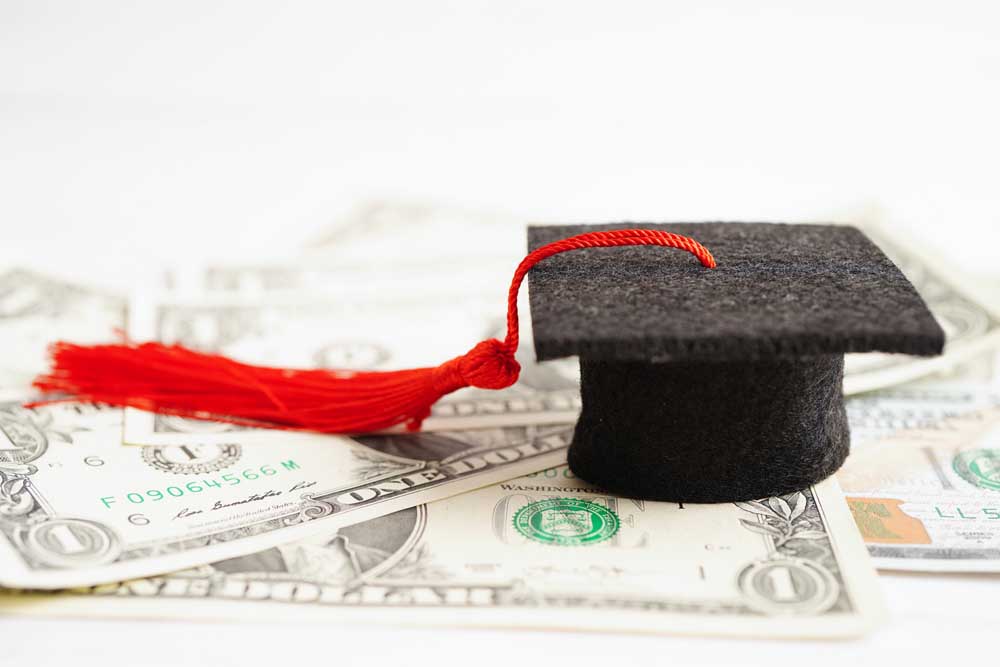not for web
Published 9:15 pm Friday, June 23, 2023

- College costs
In 1987, William Bennett, then-President Ronald Reagan’s secretary of education, penned what might have been the most famous op-ed in education history. Pointing to the steady upward march of tuition after federal aid increased in the late 1970s, he declared, “Federal student aid policies do not cause college price inflation, but there is little doubt that they help make it possible.”
Bennett was not the first to suggest that government subsidies for tuition might worsen the problem they were intended to solve. But he was the first secretary of education to do so in the New York Times, so this idea came to be known as “the Bennett hypothesis.”
Ordinarily, this debate is mostly hours of fun for education wonks. But Senate Republicans just introduced a package of student loan reforms that implicate the question directly. One of their proposals is to end the Grad Plus program, which effectively allowed graduate students to borrow unlimited sums to fund their tuition, and replace it with a strictly capped program. If the Bennett hypothesis is correct, then capping the loans will rein in tuition inflation, making graduate students better off in the long run. If it’s wrong, change will hurt them by making it harder to access valuable education.
So which is it?
This turns out to be a complicated question. The Bennett hypothesis certainly seems intuitive — but then, intuitively, the Earth seems flat.
Indisputably, institutions have to stop raising tuition when they reach the point at which their student bodies run out of funds — no matter how great a degree from Harvard Medical School might be, no one can afford to shell out $1 trillion to acquire one. So if you increase the funds available to pay tuition, you also necessarily increase the amount a school can charge for tuition.
That said, a lot of other things might limit tuition well before institutions hit the ceiling of a student’s ability to pay — such as the student’s willingness to pay, or maybe even common human decency.
Which brings us to the empirical data. Over the years, many studies have found suspiciously Bennett-like effects on tuition — in one case, as much as 60 cents of every dollar borrowed were diverted into tuition hikes. Other research has found small effects or none, including a pair of papers from education scholar Robert Kelchen at the University of Tennessee showing that expanded graduate student loan programs had little influence on the cost of professional school. For proponents of expansive student loan programs — or federal aid more generally — Kelchen’s work is particularly encouraging, because he studied those effectively unlimited Grad Plus loans. If raising loan limits to infinity doesn’t produce Bennett-like effects, then it’s hard to see what could.
Alas, another team of researchers has now come along with a healthy dose of discouragement. Kelchen had looked at the listed tuition prices of business, law and medical schools whose students previously had access to a substantial private loan market. Economists Sandra E. Black, Lesley J. Turner and Jeffrey T. Denning looked at the same Grad Plus changes but studied a broader array of graduate programs, using Texas data that let them see which students and programs had been constrained by the earlier loan caps — students who had borrowed right up to the limit, and programs that had a high percentage of such students.
They found that after the caps were lifted, those constrained students borrowed more and constrained programs raised their tuition faster.
Of course, no policy is perfect. An earlier study of undergraduate borrowing by some of the same researchers who analyzed the Texas grad school data found that while increasing student loan limits raises student indebtedness, it also “improves degree completion, later life earnings, and student loan repayment.” One could argue that this is worth higher indebtedness and even some tuition inflation, especially if it boosts access for underrepresented groups.
Unfortunately, the researchers’ study of graduate schools isn’t so encouraging. On net, uncapping the loans left students worse off.
To be clear, this is only one study in one state. And it applies only to graduate school. But nearly half of all new federal loans disbursed in 2021 to 2022 went to graduate students, and more than half of the student loan debt outstanding is held by households with graduate degrees. When you hear about someone with an eye-popping, six-figure debt burden, you’ll almost always find that person went to graduate school.
Now it seems that in an attempt to help those people gain valuable human capital, the government might have “helped” them take a significant amount of unnecessary debt. Republicans are right that this program needs reform; unfortunately, for a lot of students, it will come too late.






